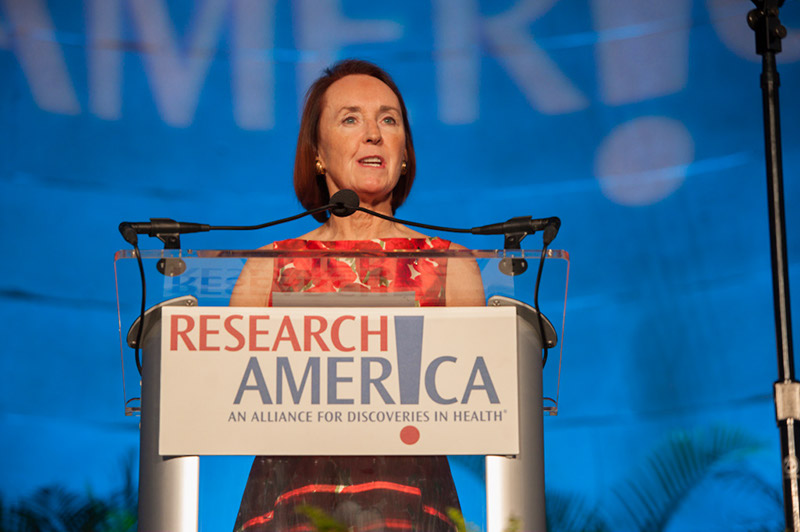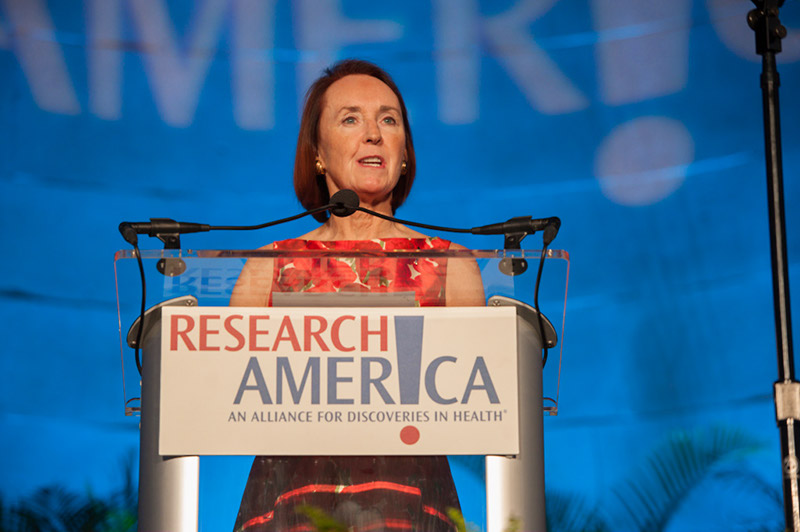Mixed Signals


Dear Research Advocate,
In a week with lots of mixed signals on health care, we released new survey data that shows a striking increase in public support for empowering patients (and we are all patients!) to participate in clinical trials. A strong majority say joining a clinical trial is as valuable as donating blood. And a new question shows the public would value providers discussing clinical trials as a routine part of health care. These findings come just as NIH’s “All of Us” initiative launches a new grant program to encourage enrollment in the ambitious one million-enrollee clinical research effort.
Read more about our survey, and plan to attend our National Health Research Forum in Washington, D.C., on September 7 to hear more on this and other research-relevant topics!
Today, the Senate Appropriations Committee passed its version of the Commerce, Justice, Science (CJS) appropriations bill with $7.3 billion for NSF, which is a cut of 2% from fiscal year 2017. According to CJS Subcommittee Ranking Member Jeanne Shaheen (D-NH), that would mean 456 fewer grants, cutting support for 5,000 researchers, students teachers and technicians. As Senator Shaheen stated:“This legislation should do more to invest in infrastructure, science, and law enforcement, which is why Congress must approve a new budget deal that provides the necessary resources for both military and domestic programs.”
I’ve said it before and I’ll say it again (and again and again): To support priorities like science, education and health, as well as defense, we must have a budget deal to lift the FY18 sequestration budget caps. Better yet, instead of revisiting the caps every couple of years, Congress could repeal the bill that established them: the 2011 Balanced Budget Act. Read Senator Cotton’s (R-AR) op-ed calling for repeal, then write your own. We’ll help! Contact Anna at [email protected].
Meanwhile, as in previous years, Senator John McCain (R-AZ) inserted language into the National Defense Authorization Act (NDAA) that would choke off crucial DoD funding for medical and health research. (Did you know that DOD funding enabled Dr. Dennis Slamon to develop the miracle drug Herceptin? This language would stop that kind of progress.) Senators Dick Durbin (D-IL) and Roy Blunt (R-MO) have drafted an amendment to prevent the McCain provisions from taking effect. Read our letter thanking these stalwart research champions, as well as one to all Senators asking them to support the Durbin/Blunt amendment. Then take a moment to reinforce this with your Senators.
In regulatory news, it appears the Senate will not pass the Food and Drug Reauthorization Act (FDARA) before the end of July. FDA Commissioner Dr. Scott Gottlieb, who will be joining us at our Forum on September 7, has indicated that he fully expects Congress to pass FDARA before the current user fee agreements expire on September 30, thus avoiding the need for layoffs. We’ll continue to keep a close watch and provide advocacy opportunities as needed!
Finally, our friends at FASEB are hosting a timely webinar to equip science advocates to act locally, capitalizing on the August congressional recess to make the case for robust science funding. In solidarity with FASEB’s intent, I spoke last evening to a group of vascular biologists from across the nation about the importance of speaking to their members of Congress in August. It’s important to overcome the “invisibility” of science and scientists, which is holding back more robust support for science. One of several good questions came from a researcher whose own member of Congress is already a great champion — my advice is (1) it’s never superfluous to say thank you, and (2) think about someone you know who lives in another part of the country — perhaps somewhere that is less “science intensive” — and ask them to connect with their member of Congress. Please get involved; find a way to make a difference in August.
Sincerely,
Mary Woolley




